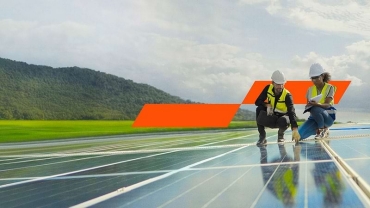
Becoming a sustainable organisation faster by focussing on culture
09/11/20
Applying lessons from the Covid-19 crisis to achieve sustainable progress
The COVID-19 crisis shows that together we have a great capacity for change. It also makes many people realise what is most important. According to PwC professionals Marloes van Loon, Wendy van Tol and Femke Helgers, this is a good time to anchor the United Nations’ Sustainable Development Goals (SDGs) in your organisation.
Changes on three levels: saying, being, doing
Change is the only constant factor in this day and age, but the extent and speed of change in 2020 is unprecedented. These changes are visible on three levels: saying, being and doing.
Shortly after the outbreak of the Covid-19 crisis, many organisations indicated that the safety of employees and society is the most important goal. That is a change in terms of saying. At the same time, a transformation is taking place towards a new way of being. Research carried out by the Barrett Values Centre shows, for example, that employees now consider values such as making a difference, adaptability, well-being and caring more important than before the Covid-19 outbreak. A good example of this is the use of video calls. It now feels almost old-fashioned to call without an image.
Acceleration towards a sustainable organisation
Before the COVID-19 crisis, the SDGs received more attention, but the speed with which they were implemented often left much to be desired. The need to accelerate in this area is essential if we are to achieve the SDGs by 2030. The rapid changes during the COVID-19 crisis in the area of saying, being and doing are therefore hopeful. They offer a number of actual lessons that organisations can draw in order to continue and anchor the acceleration towards a sustainable organisation.
Saying: tell how you want to make a difference
Even before the crisis, organisations were paying increasing attention to sustainability. Many leaders indicate that sustainability is one of the priorities if their organisation is to continue to flourish in the future. This change can also be seen on an individual level. For example, research by ABN AMRO shows that over seventy percent of Dutch people want to preserve the cleaner air and positive environmental effects created by the partial shutdown of the economy.
With increasing attention to sustainability from various stakeholders and with upcoming legislation and regulations, it is particularly important that organisations inform us how they will make a difference in the world and contribute to the 2030 Agenda for sustainable development. Front runners now clearly indicate what goals they set (e.g. 'net zero emissions') and report on them in the annual report.
Being: show what is important to you
The organisations’ values and culture must then support the organisational story. Research by the Barrett Values Centre shows that employees would like to retain a number of values that have become more important within the organisation as a result of the COVID-19 crisis. These values - such as adaptability, agility, teamwork, digital connectivity, work/life balance and team collaboration - can be used by an organisation to contribute to SDGs. For example, it can make employees work from home more often and travel less. Now is the time for organisations to show what they really think is important.
Embedding new values within an organisation is difficult. When an organisation commits itself to the SDGs and new values, a certain urgency is necessary to convince employees that individual behaviour actually contributes. The COVID-19 crisis has created the awareness that our planet is suffering as a result of our consumption patterns. Organisations can use this knowledge to make changes in behaviour stick. It is advisable to create a narrative about the desired shift in value patterns and to define who are the new heroes. The latter can help to fill important positions. These individuals should be the example of the desired culture and contribute to making the culture change.
Doing: concrete steps that employees can take and on which they have influence
The COVID-19 crisis has taught us to focus on things that we have influence on. We cannot solve the COVID-19 crisis, but we can keep our distance. When realising a culture change and establishing new values associated with the SDGs - for example, less travel and consumption and more attention to inequality and diversity - it is important that attention shifts to concrete steps that employees can take and on which they have influence.
Organisations simply should act upon this. Working from home and keeping a distance have become the new way of doing things, which we have come to accept as new socially desirable behaviour. In many cases we see the benefits and even new possibilities. At a deeper level, our collective assumptions are also changing. We have found that we can be very productive while working from home and staying connected with colleagues at the same time. Our thoughts determine what we think is the ‘new normal’. If we stick to these thoughts, we can change our behaviour permanently.
Make it measurable
86 percent of CEOs who participated in the PwC Global CEO Survey last year, indicated that reliable data on employee views is crucial. Only 29 percent indicated they actually had this data. The SDG Values Assessment (a PwC and Barrett Values Centre collaboration) provides organisations insights into how well the current and desired culture is aligned with sustainability objectives. This way, the limiting values - which make achieving sustainability objectives difficult - can be mapped out. It also provides insight into the specific strengths of the organisational culture that accelerate achieving sustainability ambitions.

Contact



















